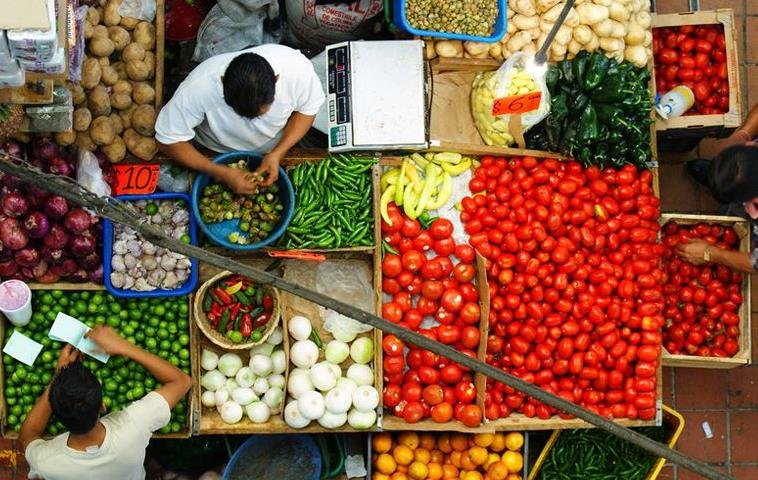The Federal Government has said that it plans to set up a commodity board to regulate the soaring prices of food in the country, as the rising cost of food drags many Nigerians into meltdown. The plan was announced by Vice President Kashim Shettima, who said that the board would be given the mandate to assess and regulate food prices, as well as maintain a strategic food reserve for stabilising prices of crucial grains and other food items.
The plan comes as the Federal High Court in Lagos gave the government a seven-day ultimatum to fix the prices of goods and petroleum products, following a suit filed by a human rights lawyer, Femi Falana. The court ordered the government to implement the Price Control Act of 1977, which empowers the government to regulate the prices of essential commodities and services. The court also ordered the government to enforce the Anti-Hoarding Act of 1975, which prohibits the hoarding of goods and services.

The government’s plan also comes amid the escalating food inflation in the country, which has reached 33.9 per cent, according to the National Bureau of Statistics. The high cost of food has been attributed to various factors, such as insecurity, climate change, border closure, exchange rate, fuel subsidy removal, and COVID-19 pandemic. The high cost of food has affected the living standards and well-being of many Nigerians, especially the poor and vulnerable, who spend a large proportion of their income on food.
FG to adopt short-term, medium-term and long-term strategies
Shettima said that the government’s solution to the potential food crisis has become immediate, medium, and long-term strategies. He said that the short-term strategy entails revitalising food supply through specific interventions, such as the distribution of fertilisers and grains to farmers and households to cushion the effects of subsidy removal; fostering collaboration between the ministries of agriculture and water resources for efficient farmland irrigation, ensuring year-round food production; and addressing price volatility by establishing a national commodity board.
He said that the medium-term strategy entails enhancing food security and resilience through policy reforms, such as the implementation of the National Food Security Council’s resolutions, the National Livestock Transformation Plan, the Green Imperative Project, and the National Agricultural Land Development Authority. He also said that the medium-term strategy entails promoting agro-industrialisation and value addition, such as the establishment of agro-processing zones, the development of agricultural mechanisation centres, and the facilitation of access to finance and markets for farmers and agribusinesses.
He said that the long-term strategy entails transforming the food system and achieving the Sustainable Development Goals, such as ending hunger, achieving food security and improved nutrition, and promoting sustainable agriculture. He also said that the long-term strategy entails restoring degraded land and combating climate change, such as the implementation of the Great Green Wall Initiative, the Nigeria Erosion and Watershed Management Project, and the Nigeria Climate Smart Agriculture Project.
FG to engage security forces to protect farmers and activate more farmlands
Shettima also said that the government would engage the security forces to protect the farms and the farmers, so that they can return to the farmlands without fear of attacks. He said that the security challenge posed by bandits, kidnappers, and insurgents had disrupted agricultural activities and displaced many farmers from their homes and livelihoods. He said that the government was determined to restore peace and security in the affected areas, and to ensure the safety of the farmers and their produce.
He also said that the government would activate more farmlands across the country, especially in the northern region, where there are vast arable lands that are underutilised. He said that the government would provide incentives and support to the state governments, the private sector, and the civil society to invest in agriculture and to develop the potential of the land. He said that the government would also encourage the youth and women to participate in agriculture and to take advantage of the opportunities in the sector.
FG calls for collaboration and cooperation from all stakeholders
Shettima also called for collaboration and cooperation from all stakeholders, including the federal, state and local governments, the private sector, the civil society, the media, and the international community. He said that the government alone could not solve the food crisis, and that it required the collective efforts and contributions of all actors and sectors. He said that the government was open to dialogue and partnership with anyone who had genuine and constructive ideas and solutions to address the food challenge.
He also appealed to the citizens to support the government’s policies and programs, and to cooperate with the authorities in ensuring food security and stability. He urged the citizens to avoid panic buying, hoarding, and wastage of food, and to adopt prudent and responsible consumption habits. He also urged the citizens to report any cases of price manipulation, profiteering, or sabotage to the relevant agencies for appropriate action.
He assured the citizens that the government was committed to ensuring food availability, accessibility, and affordability for all Nigerians, and to improving the quality and quantity of food production and consumption in the country. He said that the government was working hard to create a conducive and enabling environment for agriculture and food systems to thrive and flourish, and to achieve the vision of a food-secure and prosperous Nigeria.
















